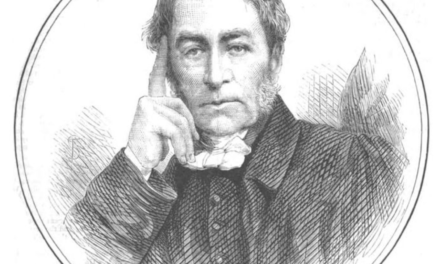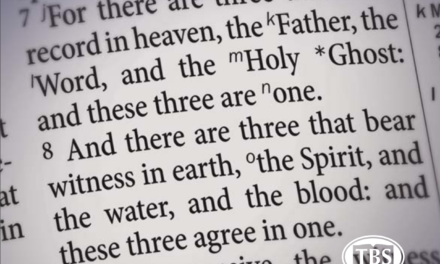
What Did Jesus
Write on the Ground?
Answered by R.J. Rushdoony
Quoting John William Burgon
“But Jesus stooped down, and with his finger, wrote on the ground.” Again, two verses later, we read, “and again stooped down, and wrote on the ground” (John 8:6-8)
At this point, a great deal of fanciful preaching has been done and many men have let their imagination run wild. What was he writing on the ground? What was the point of all the writing on the ground, or the tracing on the ground? (It can be rendered either way.)
This is not a matter for imagination; it is a matter where scripture must be allowed to interpret scripture, and the matter has been known, and the answer is to be found in the Old Testament in Numbers chapter 5. What is the significance?
It can be best summarized by a quotation by Dean Burgon of the Church of England of some generations ago, one of the greatest champions of the infallible Word that we have ever had in the history of the Church.
The sad fact is that Dean Burgon is rarely mentioned today except in scorn, but he is one of the greatest scholars and one of the greatest champions of the infallible Word, and the true faith, that England ever produced.
There is one man who carries on the kind of textual scholarship that Dean Burgon did, Dr. Edward Hills. Some of you have read his King James Version Defended and others of his works.
But Dean Burgon said of this matter, and I quote:
“The scribes and Pharisees bring a woman to our savior on a charge of adultery. The sin prevailed to such an extent among the Jews that the divine enactments concerning one so accused had long since fallen into practical oblivion.
On the present occasion, our Lord was observed to revive his own ancient ordinance after an hitherto unheard of action.
The trial by the bitter water or water of conviction (see Numbers 5:11-31) was a species of ordeal intended for the vindication of innocence and the conviction of guilt; but according to the belief that tests proved inefficacious unless the husband himself was innocent of the crime whereof he accused his wife.
Let the provisions of the law contained in Numbers 5:16-24 be now considered.
The accused woman, having been brought near and set before the Lord, the priest took holy water in an earthen vessel and put of the dust of the floor of the tabernacle (or the temple), into the water. Then with the bitter water that causeth a curse in his hand, he charged the woman by an oath.
Next, he wrote the curses in a book and blotted them out with the bitter water, causing the woman to drink the bitter water that causeth a curse, whereupon if she were guilty she fell under a terrible penalty, her body testifying visibly to her sin. If she were innocent, nothing followed.
And now, who sees not that the Holy One dealt with his hypocritical assailments as if they had been the accused parties? Into the presence of incarnate Jehovah verily they had been brought. And perhaps when he stooped down and wrote upon the ground it was a bitter sentence (that is one of the curses) against the adulterer and adulteress which he wrote.
We have but to assume some connection between the curse which he thus traced in the dust in the floor of the tabernacle or temple and the words which he uttered with his lips, and he may with truth be declared to have taken of the dust and put it on the water and caused them to drink of the bitter water which causeth the curse.
For when by his Holy Spirit, our great High Priest in his human flesh addressed these adulterers, what did he but present them with the Living Water—himself, in an earthen vessel.
Did he not further charge them with an oath of cursing, saying if ye have not gone aside to uncleanness, be free from the bitter water, but if ye be defiled are being presented with which alternative?
Did they not, self-convicted, go out one by one? And what else was this but their own acquittal of the sinful woman for whose condemnation they had shown themselves so impatient?
Surely it was the water of conviction as it is six times called which they had been compelled to drink, whereupon convicted by their own conscience as St. John relates, they had pronounced the other’s acquittal.
Finally, note that by himself, declining to condemn the accused woman, our Lord also did in effect blot out those curses which he had already written against her in the dust when he made the floor of the sanctuary his book.”
Now Dean Burgon said it better than anyone before or after, and very faithfully, in terms of scripture.




